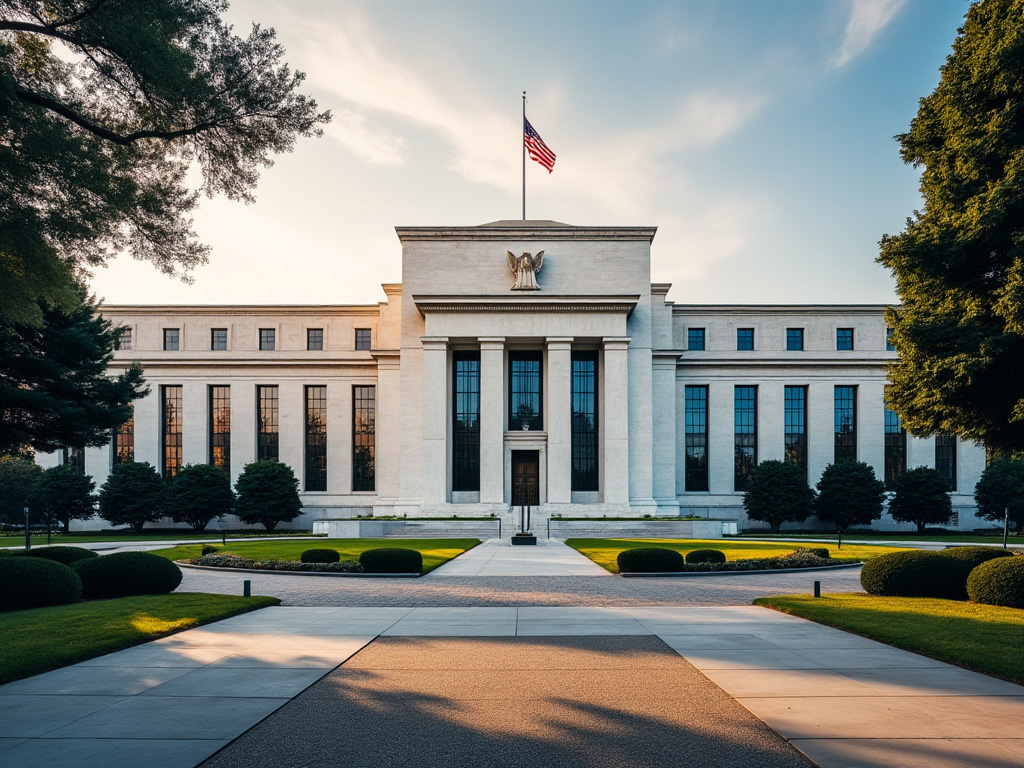The US Federal Reserve has opted to keep interest rates steady, citing significant economic uncertainty following recent tariff measures introduced by President Donald Trump.
In its announcement on Wednesday, the central bank confirmed that interest rates would remain unchanged. This marks the third consecutive decision to maintain the current rate, leaving the federal funds rate around 4.3%. While President Trump has repeatedly urged the Fed to cut rates to lower borrowing costs, the institution emphasized the complexity of the current economic environment.
Federal Reserve Chairman Jerome Powell stated that the ongoing tariff policies had introduced enough ambiguity to complicate the bank’s usual decision-making process. “It’s really not at all clear what it is we should do,” Powell remarked. “There’s so much uncertainty.”
The Fed, which operates independently from the executive branch, noted that tariffs had increased the likelihood of both an economic slowdown and accelerated inflation. These conflicting risks make it more challenging to determine the appropriate monetary policy response. Normally, the Fed adjusts interest rates to either stimulate the economy or temper inflation, but current signals are mixed.
This meeting was the first since President Trump’s latest tariff announcements last month, which involved raising import taxes on goods from various countries. In particular, imports from China were hit with duties starting at 145%. Since then, US logistics companies and ports have reported notable declines in trade volume. Analysts have warned that recession risks have grown considerably since the start of the year.
President Trump, who campaigned for re-election on promises of lower interest rates, has publicly pressured the Fed to reduce rates “pre-emptively.” He has also criticized Powell directly, calling him “a major loser” and “Mr Too Late” for not moving faster on rate cuts. At one point, Trump suggested he had considered removing Powell from his position.
Meanwhile, other central banks are reacting to global trade tensions. The European Central Bank reduced interest rates last month, citing similar concerns. The Bank of England is expected to take comparable action in the coming days.
Officials from the US and China are scheduled to meet this week, although the extent of the talks remains uncertain. On Wednesday, President Trump dismissed the notion of easing tariffs ahead of negotiations, maintaining a firm stance.
Powell acknowledged that the outcome of the discussions between the US and China could significantly influence the economic outlook. “Usually, things clarify and the appropriate direction becomes clear,” he said. “Right now it’s very hard to say what that would be. In the meantime, the economy is doing fine.”
The US economy contracted during the first quarter of the year, marking the first such decline since 2022. However, officials suggested that this was primarily due to companies accelerating shipments to avoid impending tariffs, rather than a broader downturn in economic activity.
Despite the contraction, the labor market remained strong last month, with unemployment holding near historic lows at 4.2%. Additionally, the US stock market has largely rebounded from sharp declines experienced in recent weeks.







